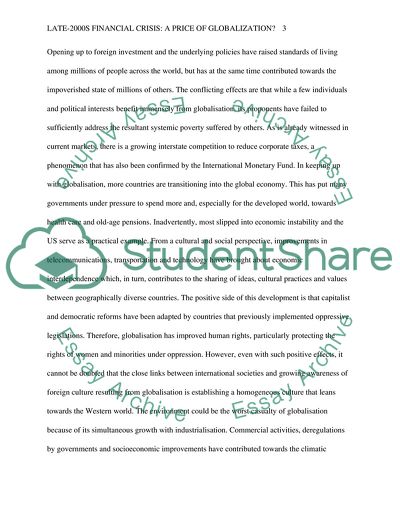Cite this document
(A Price of Globalization Essay Example | Topics and Well Written Essays - 1500 words, n.d.)
A Price of Globalization Essay Example | Topics and Well Written Essays - 1500 words. https://studentshare.org/macro-microeconomics/1829338-late-2000s-financial-crisis-a-price-of-globalization
A Price of Globalization Essay Example | Topics and Well Written Essays - 1500 words. https://studentshare.org/macro-microeconomics/1829338-late-2000s-financial-crisis-a-price-of-globalization
(A Price of Globalization Essay Example | Topics and Well Written Essays - 1500 Words)
A Price of Globalization Essay Example | Topics and Well Written Essays - 1500 Words. https://studentshare.org/macro-microeconomics/1829338-late-2000s-financial-crisis-a-price-of-globalization.
A Price of Globalization Essay Example | Topics and Well Written Essays - 1500 Words. https://studentshare.org/macro-microeconomics/1829338-late-2000s-financial-crisis-a-price-of-globalization.
“A Price of Globalization Essay Example | Topics and Well Written Essays - 1500 Words”. https://studentshare.org/macro-microeconomics/1829338-late-2000s-financial-crisis-a-price-of-globalization.


